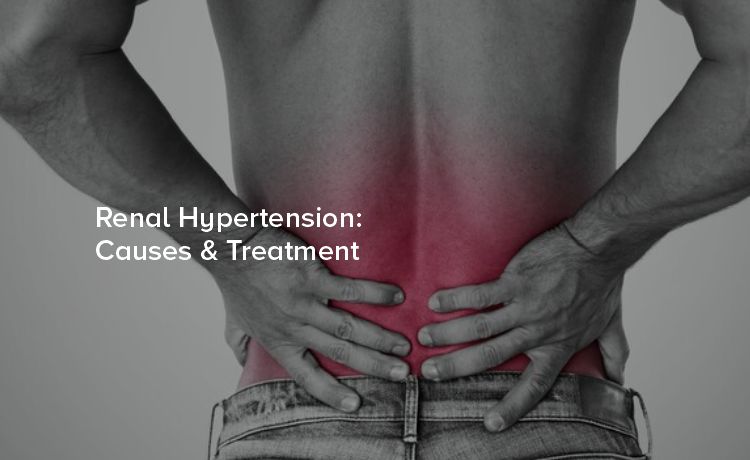
Renal hypertension, also known as renovascular hypertension, is a type of high blood pressure caused by narrowing of the arteries that supply blood to the kidneys (renal arteries). This condition can have significant impacts on overall health and requires careful management.
Renal hypertension occurs when the blood vessels leading to the kidneys become narrowed (a condition known as renal artery stenosis), reducing blood flow to the kidneys. The kidneys play a crucial role in regulating blood pressure by managing the balance of salt and water in the body. When the blood flow to the kidneys is compromised, they may signal the body to retain more salt and water, leading to higher blood pressure.
Various underlying conditions can cause renal hypertension. Here are the primary ones:
Atherosclerosis, or the hardening and narrowing of the arteries due to plaque buildup, is the most common cause of renal artery stenosis. Plaque consists of fat, cholesterol, and other substances that accumulate on the arterial walls. When these plaques form in the renal arteries, they can obstruct blood flow, leading to renal hypertension.
Fibromuscular dysplasia (FMD) is a less common cause of renal hypertension. It involves the abnormal development or growth of cells in the walls of the renal arteries, leading to a series of narrow sections within the artery. This condition is more prevalent in younger women and can lead to significant renal artery narrowing.
Other, less common causes include:
Vasculitis: Inflammation of the blood vessels.
Renal artery aneurysm: A bulging, weakened area in the wall of a renal artery.
Congenital anomalies: Abnormalities in the structure of the renal arteries present from birth.
Renal hypertension often does not cause symptoms in its early stages. However, as the condition progresses, it can lead to:
Because these symptoms overlap with those of other types of hypertensions and kidney disease, it's crucial to consult a healthcare professional for accurate diagnosis and appropriate treatment.
Diagnosing renal hypertension typically involves a combination of medical history evaluation, physical examination, and various diagnostic tests. Here are some commonly used methods:
Blood Tests
Blood tests can help assess kidney function and detect elevated levels of certain substances, such as creatinine and urea, which may indicate kidney damage.
Imaging Studies
Imaging studies are critical in diagnosing renal artery stenosis. These may include:
Doppler Ultrasound: Uses sound waves to evaluate blood flow in the renal arteries.
CT Angiography: Provides detailed images of the renal arteries using X-rays and contrast dye.
Magnetic Resonance Angiography (MRA): Utilizes magnetic fields and contrast dye to visualize blood vessels.
Renal arteriography is considered the gold standard for diagnosing renal artery stenosis. It involves the injection of a contrast dye into the renal arteries, followed by X-ray imaging to visualize the blood vessels.
Tests such as the glomerular filtration rate (GFR) can assess how well the kidneys are filtering blood, providing insight into the impact of reduced blood flow on kidney function.
The treatment of renal hypertension aims to control blood pressure, improve blood flow to the kidneys, and prevent further kidney damage. Treatment options can be categorized into lifestyle modifications, medications, and surgical interventions.
Adopting a healthy lifestyle can significantly contribute to managing renal hypertension. Recommended changes include:
Diet: Following a low-sodium diet to reduce blood pressure.
Exercise: Engaging in regular physical activity to improve cardiovascular health.
Weight Management: Maintaining a healthy weight to alleviate strain on the heart and kidneys.
Avoiding Smoking and Alcohol: Both can exacerbate hypertension and kidney damage.
Medications are often prescribed to control blood pressure and manage the underlying causes of renal hypertension. Commonly used medications include:
ACE Inhibitors and ARBs: Help relax blood vessels and reduce blood pressure.
Diuretics: Aid in the removal of excess salt and water from the body.
Beta-blockers: Lower heart rate and blood pressure.
Calcium Channel Blockers: Relax blood vessels and improve blood flow.
In cases where lifestyle changes and medications are insufficient, surgical interventions may be necessary. These include:
Angioplasty and Stenting: A catheter with a balloon at the tip is inserted into the narrowed renal artery. The balloon is inflated to widen the artery, and a stent (a small mesh tube) is placed to keep it open.
Renal Artery Bypass Surgery: A bypass graft is used to reroute blood flow around the blocked portion of the renal artery.
Renal Denervation: A procedure that disrupts the nerves leading to the kidneys, reducing blood pressure. This is still under investigation and not widely available.
While some causes of renal hypertension, such as fibromuscular dysplasia, cannot be prevented, you can take steps to reduce the risk of atherosclerosis and subsequent renal artery stenosis:
Maintain a Healthy Diet: Focus on a balanced diet rich in fruits, vegetables, whole grains, lean proteins, and healthy fats.
Exercise Regularly: Aim for at least 150 minutes of moderate-intensity exercise per week.
Control Blood Pressure and Cholesterol: Regular check-ups and medications can help manage these risk factors.
Avoid Smoking: Smoking cessation significantly reduces the risk of atherosclerosis.
Limit Alcohol Intake: Excessive alcohol can contribute to hypertension and cardiovascular disease.
Renal hypertension is a serious but manageable condition. Understanding its causes, recognizing symptoms, and seeking timely medical intervention can help prevent complications and maintain kidney health.